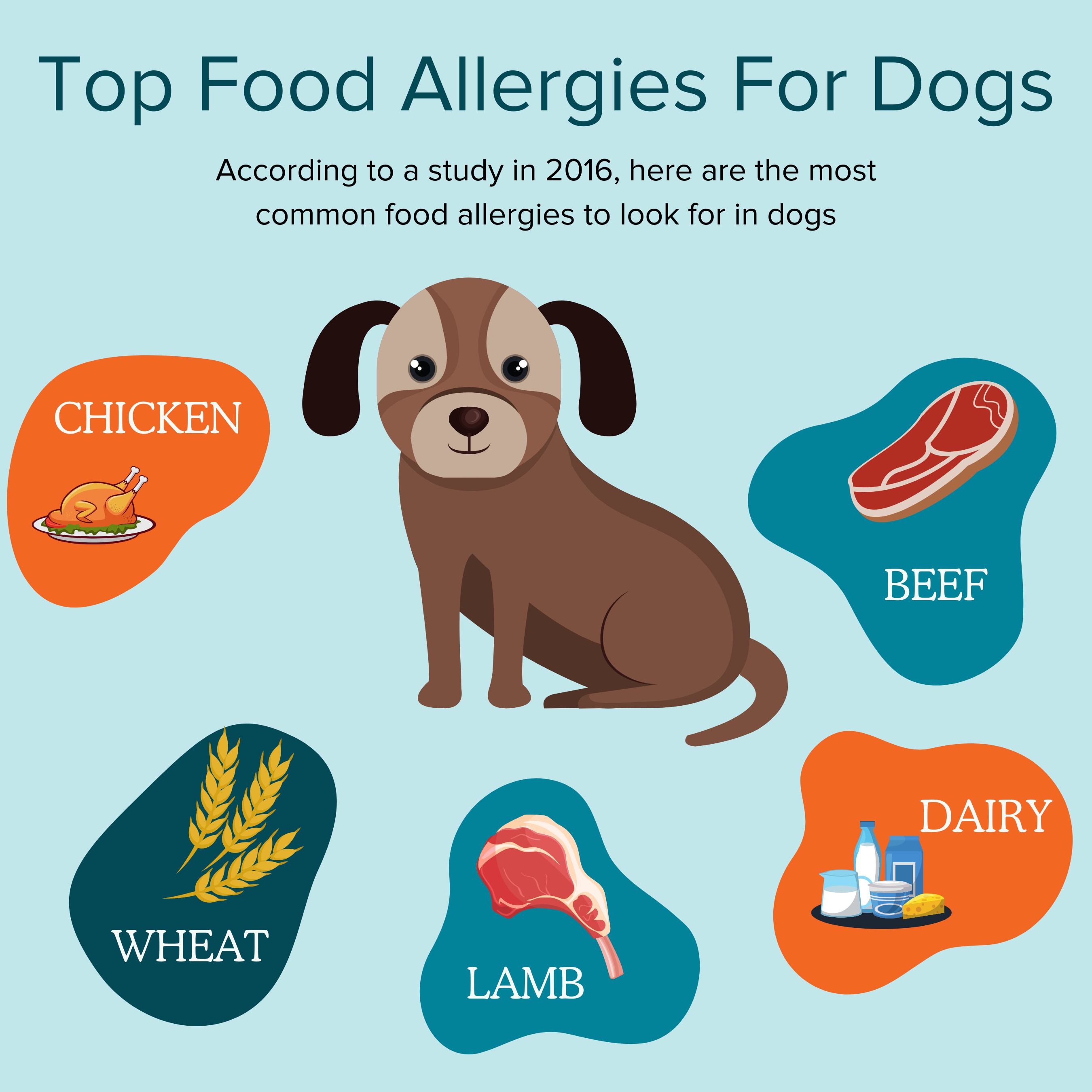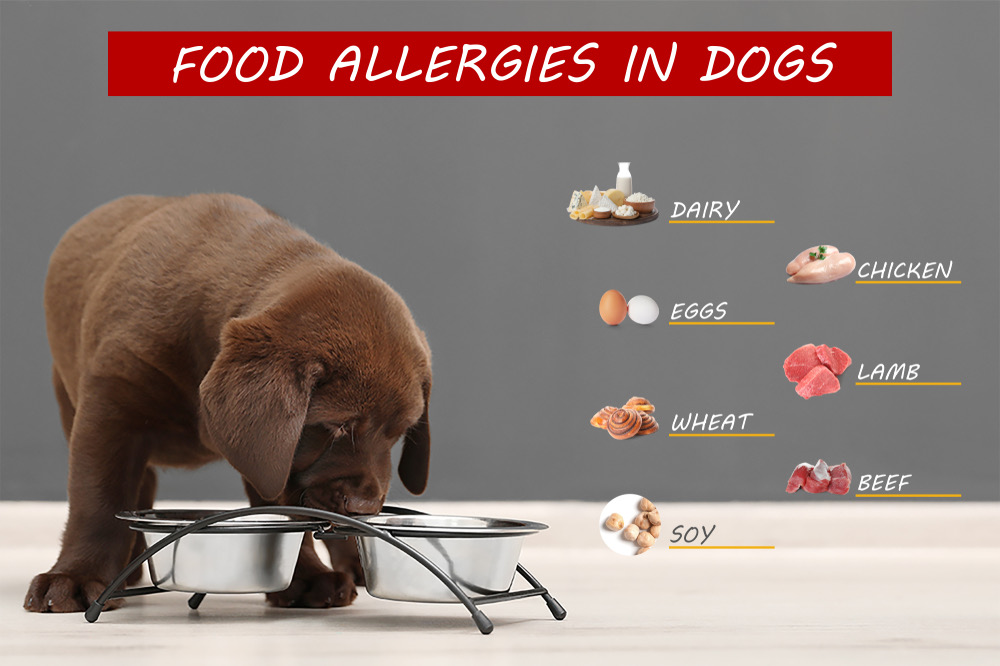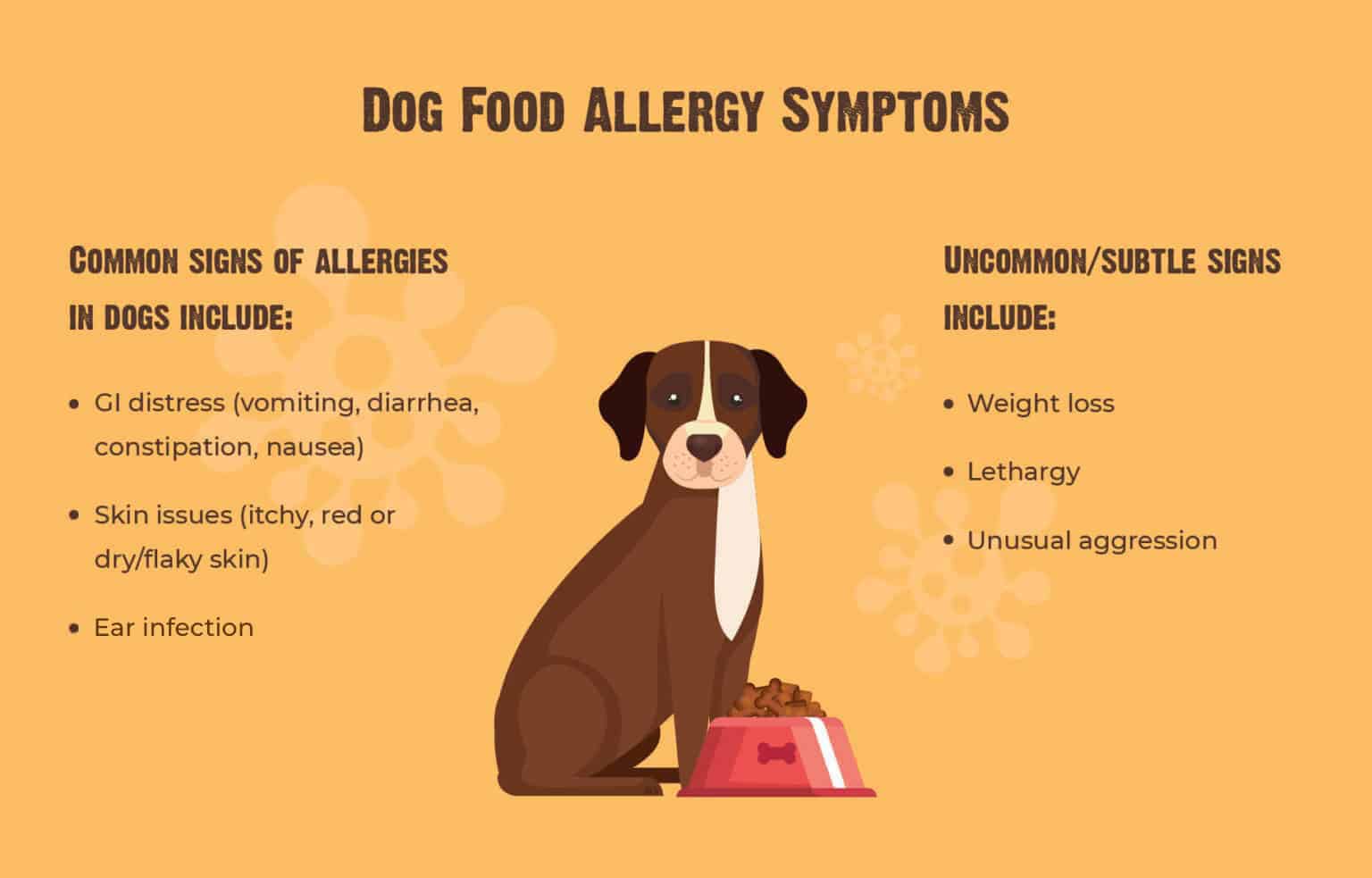Protein and complex carbohydrates are the most common food allergens in dogs. In a study, beef, dairy products, chicken, and wheat were found to cause the most food-related allergies in dogs, followed by eggs, lamb, soy, corn, pork, fish, and rice.
Food allergies in dogs can cause symptoms such as itchy skin, paws, or ears, digestive disturbances like vomiting or diarrhea, hyperactivity, weight loss, lack of energy, and even aggression. While food allergies can occur in any breed of dog, Labrador Retrievers, West Highland White Terriers, and Cocker Spaniels may have an increased risk.
If you suspect that your dog has a food allergy, consult with your veterinarian for proper diagnosis and treatment options.

Credit: www.facebook.com
Common Food Allergies In Dogs
Food allergies in dogs are commonly triggered by proteins and complex carbohydrates. Studies show that beef, dairy products, chicken, and wheat are some of the top allergens for dogs, followed by eggs, lamb, soy, corn, pork, fish, and rice. Itchy skin, digestive issues, weight loss, and lack of energy are typical signs of food allergies in dogs.
Most Common Food Allergens
Proteins and complex carbohydrates are the most common allergens for dogs. Beef, dairy products, chicken, and wheat are often identified as the top triggers for food-related allergies in dogs. Other common allergens include eggs, lamb, soy, corn, pork, fish, and rice.
Symptoms Of Food Allergies In Dogs
Signs of food allergies in dogs often manifest as itchy skin, paws, or ears, as well as digestive disturbances such as vomiting or diarrhea. Other subtle changes may include hyperactivity, weight loss, lack of energy, and even aggression.
Diagnosing Food Allergies
To diagnose food allergies, your veterinarian may perform skin or blood tests, an elimination diet, or a food trial to identify the specific allergen causing the reaction in your dog.
Treatment For Food Allergies
The treatment for food allergies in dogs typically involves a hypoallergenic diet, which may include prescription foods recommended by your vet, such as Canine Hydrolyzed Protein Dry Dog Food or specific commercial formulas for sensitive skin and stomach.
Affected Breeds
While any dog breed can develop food allergies, there may be an increased risk for certain breeds such as Labrador Retrievers, West Highland White Terriers, and Cocker Spaniels.
Managing Food Allergies
Managing food allergies in dogs involves strict adherence to a hypoallergenic diet and avoidance of known allergens. Regular monitoring and follow-up with a veterinarian are essential to track your dog’s progress.
Prevention Strategies
Prevent food allergies in dogs by introducing new foods gradually and monitoring for any signs of adverse reactions. Avoid feeding your dog table scraps or foods that are known to cause allergies.
Diet For Dogs With Food Allergies
For dogs with food allergies, a specialized diet that eliminates allergens is crucial. Work closely with your veterinarian to develop a suitable diet plan that meets your dog’s nutritional needs while addressing their specific food sensitivities.

Credit: tomandsawyer.com

Credit: www.ovrs.com
Frequently Asked Questions
What Is The Most Common Food Allergy In Dogs?
Protein and complex carbohydrates, like beef, dairy, chicken, and wheat, are common food allergens in dogs.
How Do You Tell If My Dog Is Allergic To His Food?
To determine if your dog is allergic to its food, look for signs like itchy skin, paws, or ears, as well as digestive issues such as vomiting or diarrhea. Other subtle changes may include hyperactivity, weight loss, lack of energy, or aggression.
Labradors, West Highland White Terriers, and Cocker Spaniels may be more prone to food allergies. Consult your vet for the best food options for dogs with allergies.
What Dog Breeds Have The Most Food Allergies?
The most common food allergies in dogs are caused by beef, dairy, chicken, and wheat. Some breeds, such as Labrador Retrievers, West Highland White Terriers, and Cocker Spaniels, are more prone to developing food allergies.
What Is The Best Thing For A Dog With Food Allergies?
The best option for a dog with food allergies is prescription foods recommended by a vet, like hydrolyzed protein or limited ingredient diets.
Conclusion
To ensure your dog’s well-being, it’s crucial to be aware of common food allergies they may experience. Proteins and complex carbohydrates are the primary allergens for dogs, with beef, dairy products, chicken, and wheat being the leading culprits. Eggs, lamb, soy, corn, pork, fish, and rice can also trigger allergies.
Look out for signs like itchy skin, digestive issues, hyperactivity, and weight loss. By identifying and avoiding these allergens, you can help your furry friend live a healthy and symptom-free life.



